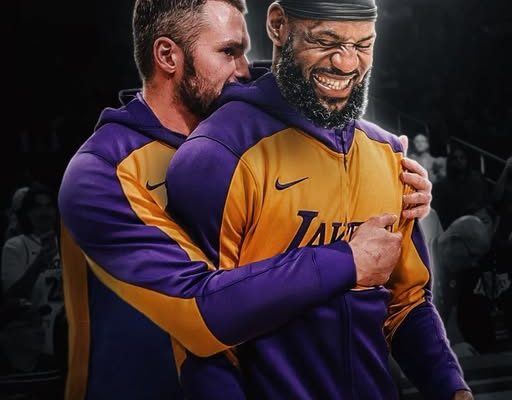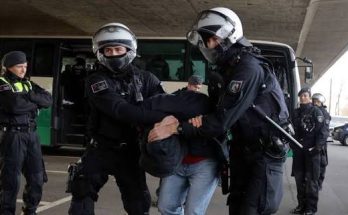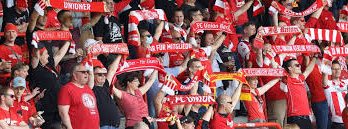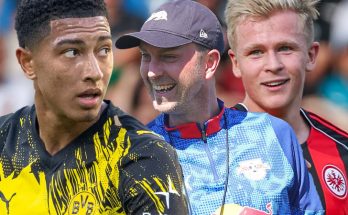Kevin Love’s name has resurfaced in the NBA rumor mill, this time with buzz surrounding a potential buyout from the Utah Jazz, and according to Jake Fischer, there’s a clear vision from the veteran forward about where he wants to go next. Per Fischer’s report, Love “really only wants to be in the big glamorous markets… New York, a Los Angeles type of situation.” At this stage in his career, it’s not entirely surprising that Love, who has already collected an NBA championship, five All-Star nods, and years of national attention, is eyeing a return to high-profile relevance in a major city. But the implications of this move go far beyond a simple change of scenery. The potential buyout and subsequent signing could drastically alter the makeup of a contender or add much-needed veteran leadership and floor spacing to a team hoping to reach that next tier. And for Utah, it’s another sign that despite their efforts to be competitive, not every player is buying in to the long-term project.
The Jazz acquired Love in what was seen as a modest yet potentially strategic move. His veteran presence, championship experience, and respected voice in the locker room could have been valuable assets to a young team looking to build momentum in a Western Conference that has become increasingly brutal. But Love’s value to Utah might never extend beyond the symbolic, especially if he’s unwilling to fully embrace the small-market grind. That unwillingness seems clear based on the recent leaks. He has reportedly made it known that his preference is to relocate to one of the NBA’s bright-light destinations—either New York or Los Angeles—where the off-court opportunities, media attention, and lifestyle are more aligned with his personal and professional brand.
Love’s desire to be in a big market isn’t an isolated trend. The NBA has seen waves of stars and veterans expressing similar preferences in recent years. From Anthony Davis pushing his way to the Lakers, to James Harden making his Brooklyn-to-Philly-to-LA tour, and even Damian Lillard’s long-winded exit from Portland, the market size and media profile of a team are now bigger factors than ever in player movement. And for Love, who’s closer to the end than the beginning of his career, making one last impactful run in a big city may offer both on-court benefits and lifestyle satisfaction. He’s been to the mountaintop before, winning a championship with LeBron James in Cleveland during the 2016 Finals. That run validated Love as a winner, a clutch contributor, and a critical cog in a historic comeback. But since those days, his career has fluctuated between underwhelming seasons in Cleveland’s rebuild, a brief resurgence in Miami, and now this short-lived Utah stint that seems doomed to fizzle out.
What’s intriguing about Love’s potential buyout is how it opens up interesting suitor dynamics. The Los Angeles Lakers, for instance, are a natural fit on paper. Love is a UCLA alum, already has strong chemistry with LeBron James, and could fit in well as a bench shooter and rebounder, especially given the team’s need for veteran stability and floor spacing. LeBron has always spoken highly of Love, and given the Lakers’ current frontcourt depth issues, adding a stretch-four with championship pedigree could be a logical move. Furthermore, the Lakers’ front office has shown a tendency to lean into veteran pickups who have history with their stars—think Dwight Howard, Rajon Rondo, and Carmelo Anthony in previous seasons.
Then there’s the Clippers, who may not have the same glaring need for a forward like Love, but who are in perpetual win-now mode and could always use another experienced body who can contribute in the playoffs. Their new Inglewood arena is also a project that demands attention and talent, and a well-known face like Love—even in a minor role—adds some marketing power. With Kawhi Leonard and Paul George constantly battling injury concerns, depth becomes more than just a buzzword. It becomes survival. Love, even in his twilight, could still be good for 15–20 minutes of meaningful basketball on the right night.
On the East Coast, the New York Knicks are the most frequently speculated destination. Tom Thibodeau’s Knicks play a bruising, physical brand of basketball, but they’ve also sought to add reliable perimeter shooting to open the floor for Jalen Brunson and Julius Randle. While Love’s defense has declined, his ability to rebound and stretch the floor could offer something unique off the bench. Plus, Madison Square Garden offers the spotlight that Love reportedly craves, and New York City provides ample post-career networking opportunities in media, fashion, and more. That matters for someone like Love, who has already made appearances in fashion campaigns, written personal essays on mental health for national publications, and expressed interest in life beyond basketball.
From a basketball standpoint, though, the question is whether Love still has enough left in the tank to actually help a contender. Last season, with the Miami Heat, he carved out a rotation role, even helping the team during their surprising playoff run. His passing remained sharp, his rebounding instincts intact, and his shooting—while inconsistent—came through in key moments. But at 35 years old, Love is no longer mobile enough to guard wings or fast-paced bigs, and in a league that demands defensive versatility, he can often be schemed off the floor in certain matchups. That said, playoff teams are always in search of smart veterans who won’t shrink under pressure, and Love’s resume gives him that credibility. Whether he plays 10 minutes or 25, his presence in a playoff locker room could be as valuable as his actual on-court contribution.
What Utah gets out of this situation is murkier. If the Jazz do agree to a buyout, it suggests they’re still more focused on their long-term rebuild than on squeezing production out of veterans. They’ve been gathering young talent and stockpiling draft picks in the post-Mitchell and Gobert era, and Love’s presence—while not harmful—may not align with that timeline. The move could also signal that the Jazz are ready to fully commit to developing their younger frontcourt players without having to worry about allocating minutes to a fading star. Financially, the buyout would likely be minimal, as Love’s current deal isn’t expected to be a major strain on the Jazz’s cap flexibility.
There’s also the broader narrative arc of Love’s career that makes this chapter particularly fascinating. He began as a double-double machine in Minnesota, transitioned into a complementary third star role in Cleveland, endured a lonely rebuild in the post-LeBron Cavs, had a brief rejuvenation in Miami, and now finds himself back at a career crossroads. Throughout all of it, Love has been vocal about his mental health struggles, his role identity, and his evolving perspective on what basketball means to him. That transparency makes him one of the more relatable and respected veterans in the league, and it also makes this next move feel like more than just another transaction. For Love, choosing New York or Los Angeles isn’t just about the glitz.



